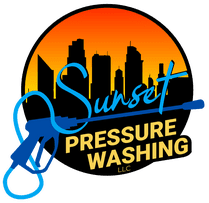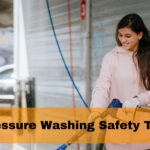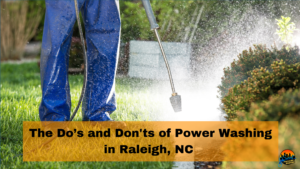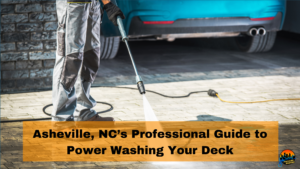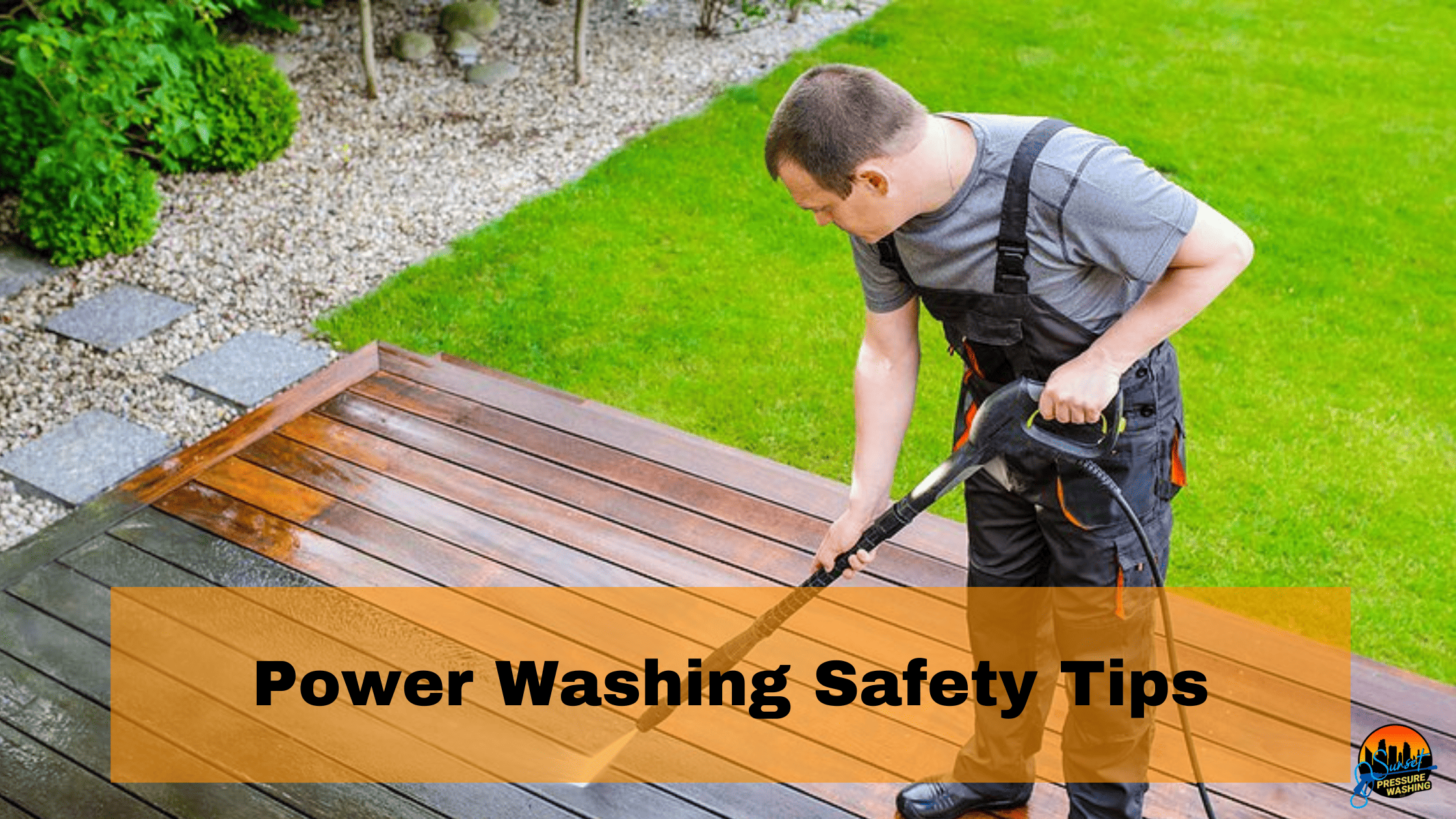
Power Washing Safety Tips
Power washing, also known as pressure washing, is a highly effective way to clean various surfaces around your home or business, including driveways, decks, and siding. However, with the great cleaning power comes the need for safety and caution. Improper use of a power washer can lead to damage to your property or, worse, personal injury. In this comprehensive guide, we’ll explore essential safety tips to ensure your power washing experience is both effective and safe.
Understand Your Equipment
Embarking on any power washing project begins with a crucial step: understanding your equipment. The effectiveness and safety of your power washing largely depend on how well you know and handle the machinery. Here’s a breakdown of what you need to consider:
Know Your Power Washer
Each power washer has its unique features and specifications. It’s essential to read the owner’s manual thoroughly. This guide is not just a booklet of instructions; it’s a treasure trove of crucial information about your specific model. Understand its operation, the maximum pressure it can exert, the flow rate, and any unique features or limitations.
Familiarize Yourself with the Settings
Power washers come with various settings to cater to different cleaning tasks. Familiarize yourself with how to adjust the pressure settings and what each level is suitable for. Using too high a pressure on a delicate surface can cause damage, while too low might not be effective for tough grime.
Understand Nozzle Types
Nozzles control the angle and intensity of the water stream. Each nozzle is designed for specific tasks, ranging from a narrow, high-pressure stream for tough stains to a wider, lower-pressure spray for delicate surfaces. The common nozzle types include 0° (red), 15° (yellow), 25° (green), 40° (white), and the soap (black) nozzle. It’s critical to select the right nozzle for the job to avoid damage to the surface or the risk of injury.
Learn About Detergents and Cleaning Solutions
Some cleaning tasks may require detergents or cleaning solutions. Not every chemical is safe for use in a power washer, and not every surface is chemical-friendly. Check the manufacturer’s recommendations for suitable cleaning solutions and how to use them safely and effectively in your power washer.
Inspect and Maintain Your Equipment
Before each use, inspect your power washer for any signs of wear or damage. Check hoses for leaks, ensure connections are secure, and verify that nozzles and filters are clean and unobstructed. Regular maintenance is key to safe and effective operation. This includes tasks like changing the oil, cleaning or replacing the air filter, and winterizing the unit if necessary.
Wear Appropriate Safety Gear
When it comes to power washing, your first line of defense is wearing the right safety gear. The high-pressure spray can send debris flying, and the noise levels can be significant. Protecting yourself from potential hazards is crucial. Here’s a list of essential safety gear you should wear every time you use a power washer:
Eye Protection
High-pressure water can propel dirt, debris, and small stones at high speeds, posing a serious risk to your eyes. Safety goggles or glasses are a must to shield your eyes from any flying particles. Make sure they fit snugly and provide a clear, unobstructed view.
Protective Footwear
The power of a pressure washer can easily injure feet. Wear sturdy, closed-toe shoes or boots with non-slip soles to protect your feet from the high-pressure stream and give you a stable footing. Avoid sandals or flip-flops, as they offer no protection.
Gloves
High-quality gloves not only protect your hands from debris but also improve your grip on the power washer handle. Look for gloves that are water-resistant, durable, and provide a good grip even when wet.
Ear Protection
Power washers can be loud, especially gas-powered models. Prolonged exposure to such noise can damage your hearing. Earplugs or earmuffs can help protect your ears from the high decibel levels.
Long Clothing
Wearing long-sleeved shirts and long pants can protect your skin from debris and the intense sun. Choose materials that are breathable yet sturdy, like heavy-duty cotton or canvas.
Respiratory Protection
If you are using cleaning chemicals or working in an area with a lot of dust, consider wearing a mask or respirator to protect your lungs from harmful particles or fumes.
Protective Hat or Cap
A hat or cap can protect your head and hair from debris and the sun. If working in an area with falling objects or low-hanging obstacles, consider wearing a safety helmet.
Be Aware of Your Surroundings
Power washing is not just about handling the equipment correctly; it’s also about being acutely aware of your surroundings. This awareness is critical for preventing accidents and ensuring a safe environment for yourself and others. Here are key points to consider:
Check the Area Before Starting
Before you begin power washing, take a moment to survey the area. Look for potential hazards such as loose stones, debris, slippery surfaces, or uneven ground that could pose a risk. Remove any items that could be damaged by water or become hazardous if moved by the force of the spray.
Keep People and Pets Away
The high pressure of the water stream from a power washer can cause serious injury. Ensure that children, pets, and bystanders are at a safe distance. It’s best to establish a clear zone and inform others not to enter while you are working.
Be Mindful of Windows and Doors
Be cautious around windows, doors, and other vulnerable structures. The high-pressure stream can break glass or force water into your home or building. Ensure that all windows and doors are closed and secure before starting.
Watch for Electrical Hazards
Water and electricity are a dangerous combination. Be aware of the location of outdoor electrical outlets, fixtures, and power lines. Keep the power washer and water stream away from electrical equipment and use a ground-fault circuit interrupter (GFCI) for added safety.
Protect Plants and Landscaping
Direct the spray away from sensitive plants, gardens, and landscaped areas. The force of the water can damage plants and erode soil. Consider covering delicate areas with tarps or redirect the angle of your spray to minimize impact.
Pay Attention to Overhead Obstacles
Low-hanging tree branches, awnings, or overhangs can pose a risk. Be aware of your surroundings above as well as around you, especially when maneuvering the power washer or extension hoses.
Account for Weather Conditions
Wet, windy, or extreme weather conditions can influence the safety of power washing. High winds can redirect the spray unpredictably, while wet conditions can create slippery surfaces. Always opt for a calm, dry day for power washing.
Be Prepared for Emergencies
Have a plan in case of an accident or emergency. Keep a first aid kit nearby, know the location of your phone to call for help if needed, and be familiar with basic first aid procedures.
Use the Right Pressure
One of the most crucial aspects of power washing is using the appropriate pressure for the task at hand. The right pressure ensures effective cleaning without causing damage to the surface or posing a safety risk. Here’s how to approach this:
Understand Pressure Ratings
Power washers come with different pressure capabilities, measured in pounds per square inch (PSI). Light-duty power washers typically operate at up to 2000 PSI, suitable for cleaning cars, boats, and patio furniture. Medium-duty washers range from 2000 to 2800 PSI, ideal for siding and fences. Heavy-duty models above 2800 PSI are used for tougher jobs like cleaning driveways and concrete.
Match the Pressure to the Surface
Different surfaces can withstand different levels of pressure. Soft surfaces like wood decking require a lower PSI to avoid damage, while harder surfaces like concrete can handle higher pressure. Always start with a lower pressure setting and gradually increase it as needed.
Test in an Inconspicuous Area
Before you begin the main cleaning task, test the pressure washer on a small, hidden area of the surface. This helps you assess whether the pressure is too high and might cause damage. It’s better to start too low than too high.
Adjust Distance and Angle
The impact of the pressure can be moderated by changing the distance between the nozzle and the surface. Standing closer increases the pressure impact, while moving further away decreases it. Similarly, angling the spray can lessen the direct impact of the pressure.
Use the Correct Nozzle
Choosing the right nozzle is essential for controlling pressure. Nozzles with a wider angle distribute pressure over a larger area, reducing the force on any given point. Use a nozzle with a wider angle for delicate surfaces and a narrower one for more robust cleaning.
Be Consistent
When cleaning a surface, try to maintain a consistent distance and pressure. This consistency helps to avoid streaking or uneven cleaning. Move the nozzle in a controlled, sweeping motion for even coverage.
Handle Chemicals with Care
When using chemicals during power washing, it’s essential to handle them with utmost care to ensure safety. Here are the key points to remember:
Choose the Right Chemicals:
- Select cleaning solutions specifically designed for power washers.
- Ensure the chemicals are suitable for the surface being cleaned.
- Avoid harsh, damaging chemicals.
Read and Understand Labels:
- Carefully read the chemical labels for usage instructions and hazards.
- Pay attention to safety warnings and first aid information.
Use Protective Gear:
- Wear gloves and goggles to protect your skin and eyes.
- Use protective clothing and, if necessary, a respirator or face mask.
Dilute and Mix Chemicals Properly:
- Follow manufacturer instructions for dilution and mixing.
- Use clean containers for mixing.
Apply Chemicals Safely:
- Use a low-pressure setting when applying chemicals.
- Start from the bottom and move upwards.
- Avoid direct spray on sensitive areas like windows and doors.
Be Environmentally Conscious:
- Be mindful of chemical runoff.
- Avoid using toxic chemicals near sensitive areas.
- Consider eco-friendly cleaning solutions.
Store Chemicals Safely:
- Store in a secure, dry place.
- Keep away from children and pets.
- Ensure containers are well-labeled and tightly sealed.
Dispose of Chemicals Responsibly:
- Never pour chemicals down the drain or on the ground.
- Follow local guidelines for disposal of hazardous materials.
Emergency Procedures:
- Have a plan for accidental exposure.
- Keep a first aid kit accessible.
- Know the procedure for washing off chemicals and have emergency contacts ready.
Practice Proper Technique
Effective and safe power washing relies heavily on using the right techniques. Improper use can lead to uneven cleaning, damage to surfaces, or personal injury. Here are some key techniques to ensure a successful and safe power washing experience:
Maintain a Safe Distance
- Start Far, Then Move Closer: Begin by holding the nozzle a few feet away from the surface and gradually move closer as needed. This approach helps you gauge the impact of the pressure washer without causing damage.
- Ideal Distance: Typically, keeping the nozzle 12 to 16 inches from the surface is safe for most tasks. However, adjust this distance based on the surface material and the washer’s pressure.
Use Consistent Movements
- Even Strokes: Use smooth, steady strokes when spraying. This consistency prevents streaking and ensures even cleaning.
- Overlapping Passes: Overlap each pass slightly to avoid missed spots or visible lines between cleaned and dirty areas.
Control the Angle
Angle the Spray: The angle at which you hold the nozzle affects the cleaning efficiency and the risk of surface damage. A 45-degree angle is often effective for general cleaning without being too harsh on the surface.
Avoid Direct Spraying on Sensitive Areas
Be Cautious with Vulnerable Spots: Avoid direct spraying on delicate areas like windows, doors, vents, and light fixtures. The high pressure can cause breakage or water intrusion.
Adapt to Different Surfaces
- Surface Specifics: Different surfaces require different techniques. For instance, you would use a gentler approach for wooden decks than for concrete driveways.
- Test in an Inconspicuous Area: Before starting the main job, test your technique on a small, hidden area to ensure it doesn’t cause damage.
Clean Systematically
- Work in Sections: Tackle one small area at a time, especially for large projects like cleaning a driveway or siding. This approach ensures thorough cleaning and helps you manage your efforts more effectively.
- From Top to Bottom: When cleaning vertical surfaces, start from the top and work your way down. This method prevents dirty water from dripping over already cleaned areas.
Keep the Nozzle Moving
Avoid Staying in One Spot: Keeping the nozzle in one spot for too long can etch or damage the surface. Keep the nozzle moving at all times during spraying.
Be Mindful of Water and Electricity
Combining water and electricity can pose serious risks during power washing. To ensure safety, it’s crucial to take precautions to prevent electrical hazards. Here’s how you can stay safe while working around these elements:
Avoid Electrical Outlets and Equipment
- Steer Clear of Outlets: Keep the power washer, its hose, and water spray away from all electrical outlets. This precaution reduces the risk of electric shock.
- Watch for Outdoor Lighting and Power Tools: Be aware of any outdoor electrical fixtures and tools in your working area. Make sure they are properly covered or moved away from the washing zone.
Use Ground Fault Circuit Interrupter (GFCI)
- Utilize GFCI Outlets: Always plug your power washer into an outlet equipped with a Ground Fault Circuit Interrupter. GFCIs can prevent electric shock by shutting off the power if an imbalance in the electrical current is detected.
- Portable GFCI Adapters: If your outdoor outlets aren’t GFCI-equipped, consider using a portable GFCI adapter for added safety.
Inspect Power Washer’s Electrical Components
- Regular Checks: Before each use, inspect your power washer for any signs of wear on its electrical cords and plugs. Look for fraying, cracking, or any other damage.
- Repair or Replace Damaged Parts: If you find any damage, repair or replace these parts before using the washer. Operating with faulty electrical components increases the risk of shock.
Keep Extension Cords Away from Water
- Careful Placement: If you must use an extension cord, place it in such a way that it stays clear of water pools and running water paths.
- Use Outdoor-Rated Cords: Ensure that any extension cord used is suitable for outdoor use and has a sufficient power rating for your power washer.
Dry Hands and Feet
- Avoid Handling with Wet Hands: Never plug in or unplug your power washer with wet hands. Ensure your hands are dry to minimize the risk of electric shock.
- Stand on Dry Ground: Operate the power washer while standing on a dry surface. Avoid standing in puddles or wet areas when using the washer.
Stay Alert to Weather Conditions
- Refrain from Power Washing in Rain: Never use a power washer during rainy or wet conditions. The presence of additional water increases the risk of electrical shock.
- Shut Down at Signs of Bad Weather: If the weather suddenly changes and becomes wet or stormy, stop using the power washer immediately.
Secure Outdoor Electrical Fixtures
- Cover Outdoor Sockets: Ensure that all outdoor sockets are properly covered before starting your power washing activity.
- Be Wary of Overhead Power Lines: If you’re working near buildings, be mindful of overhead power lines. Keep the spray and equipment far away from these lines.
Maintenance and Storage
Proper maintenance and storage of your power washer are crucial for its longevity and safe operation. Regular upkeep can prevent malfunctions and accidents, ensuring that the machine remains reliable and ready for use. Here are essential tips for maintaining and storing your power washer:
Regular Maintenance
- Inspect Before Each Use: Before using your power washer, inspect it for any signs of wear or damage, such as leaks in the hose, cracks in the nozzles, or loose connections.
- Clean After Use: Rinse out any detergent and clear debris from the machine after each use. This prevents buildup that could clog or damage the washer.
- Check and Change Oil Regularly: For gas-powered models, regularly check and change the oil, as recommended in the owner’s manual.
- Air Filter Maintenance: Clean or replace the air filter periodically to ensure efficient operation.
- Winterization: If you live in an area with freezing temperatures, winterize your power washer to prevent damage from frozen water in the pump.
Proper Storage
- Drain Water: After use, ensure all water is drained from the machine. This is especially important to prevent freezing and cracking in colder climates.
- Store in a Dry, Covered Area: Keep your power washer in a dry place, protected from the elements. Exposure to excessive moisture or temperature extremes can damage the machine.
- Avoid Storing with Fuel in the Tank: For gas models, avoid storing the washer with fuel in the tank for extended periods, as it can degrade and damage the engine.
- Coil Hoses Neatly: Avoid kinks and damage by coiling hoses loosely. Hang them or lay them flat for storage.
- Protect from Dust and Debris: Cover your power washer or store it in a clean area to prevent dust and debris accumulation, which can clog and damage the machine.
Regular Checks and Professional Servicing
- Check for Hose Deterioration: Regularly inspect hoses for any signs of deterioration, like cracks or bulges, and replace if necessary.
- Scheduled Professional Servicing: Consider having your power washer serviced by a professional annually, especially if you use it frequently or for commercial purposes.
Safe Electrical Practices for Electric Models
- Inspect Electrical Cords: For electric models, regularly check the power cords for damage or wear.
- Proper Electrical Storage: Store the power cord properly, avoiding tight bends or twists that can damage the wiring.
Know When to Seek Professional Help
While DIY power washing can be effective for many tasks, there are times when it’s best to call in professionals. Knowing when to seek professional help can save you time, ensure safety, and protect your property from potential damage. Here are scenarios when professional assistance is advisable:
Complex or Large-scale Projects
- Size and Scope: For large or complex projects, like cleaning multi-story buildings or extensive commercial properties, professionals can handle the job more efficiently and safely.
- Specialized Equipment: Professionals have access to high-grade equipment that might be necessary for certain tasks, which are typically not available to average homeowners.
Safety Concerns
- Working at Heights: If the job requires working on ladders or at significant heights, professionals have the training and equipment to do this safely.
- Use of High-Powered Machines: Professional-grade power washers offer higher pressure and capabilities but also come with increased risks that professionals are trained to handle.
Handling Hazardous Materials
- Dealing with Toxic Substances: If the cleaning involves hazardous or toxic substances, professionals will have the necessary equipment and expertise to handle these materials safely.
- Environmental Regulations: In certain areas, there may be regulations regarding the runoff from power washing. Professionals will know how to comply with these regulations.
Specific Surfaces Needing Expertise
- Delicate Surfaces: Some surfaces, like certain types of stone, wood, or historical structures, require a delicate touch or specific cleaning methods that professionals can provide.
- Risk of Damage: If there’s a high risk of damaging the surface, professionals can ensure that the correct techniques and pressures are used.
Introducing Sunset Pressure Wash
Specializing in professional power washing services, Sunset Pressure Wash is equipped to handle a wide range of cleaning tasks with precision and care. Their team of skilled professionals is trained in the latest techniques and safety protocols, ensuring that your property is not only impeccably cleaned but also treated with the utmost respect and care.
Choosing Sunset Pressure Wash means opting for a hassle-free, efficient, and safe cleaning experience. Whether it’s a residential driveway, a commercial building facade, or delicate surfaces requiring specialized attention, our expertise in power washing is unmatched. We proudly offer power washing in Charleston SC, Greenville SC, Simpsonville SC, and other parts of South and North Carolina. Don’t hesitate to reach out to Sunset Pressure Washing for your cleaning needs. Visit our website today to schedule a service or learn more about how they can transform and maintain the appearance of your property. With Sunset Pressure Washing, you’re choosing a partner that values the beauty and integrity of your space as much as you do.
